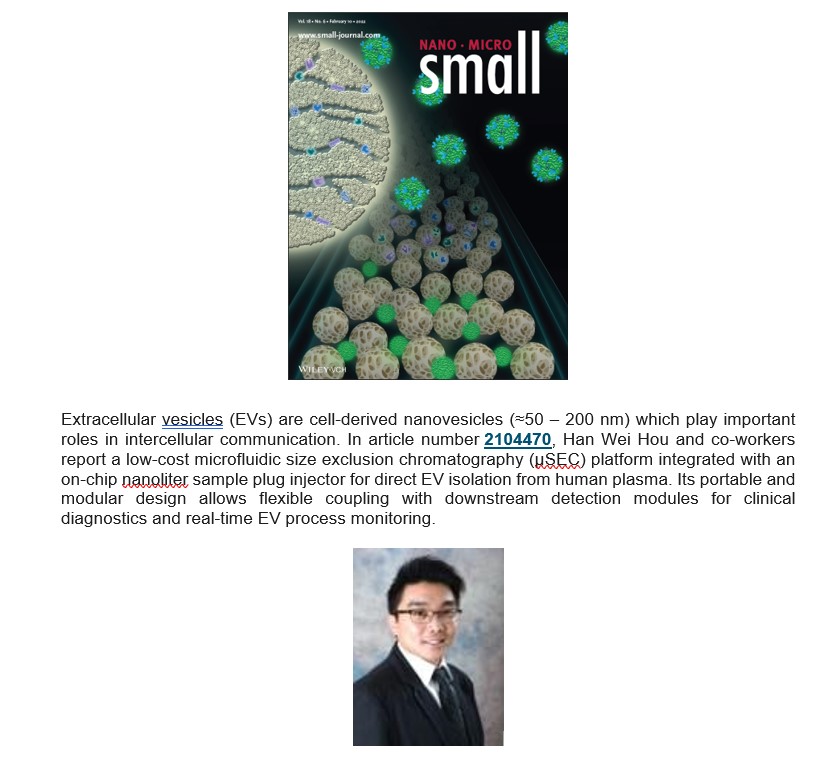NTU researchers developed a microfluidic chip for isolation of nanoscale vesicles from blood
An interdisciplinary team of NTU researchers from School of MAE, LKCMedicine, Massachusetts Institute of Technology (MIT) and Tan Tock Seng Hospital (TTSH) has developed a novel microfluidic chip for extracellular vesicles isolation from blood based on the principle of size exclusion chromatography (SEC). Extracellular vesicles (EVs) are cell-derived nanoscale vesicles (~ 50 to 200 nm) which are integral for intercellular communications, and they are also emerging biomarkers for clinical diagnostics due to the presence of disease-specific EV biomolecular cargoes (proteins, nuclei acids etc.) However, current EV isolation methods are inefficient and laborious, which are difficult to be translated into clinical settings.
In this work, Leong and colleagues have developed a low-cost microfluidic SEC device (μSEC) using UV glue and a novel rapid (≈20 min) replica molding technique. The device enables high pressure sample loading (~ 2 GPa) to pack the resin column, and is also integrated with a nano-liter sample plug injector (600 nL) to automate sample loading and processing. As a proof-of-concept for clinical applications, EVs are directly isolated from undiluted human platelet-poor plasma using μSEC with efficient depletion of plasma proteins. Overall, the optically transparent and modular μSEC can be readily automated and integrated with EV downstream detection assays for EVs manufacturing and clinical diagnostics.
The study has recently been published in Small and is featured as front cover:
Microfluidic Size Exclusion Chromatography (μSEC) for Extracellular Vesicles and Plasma Protein Separation
DOI: 10.1002/smll.202104470







